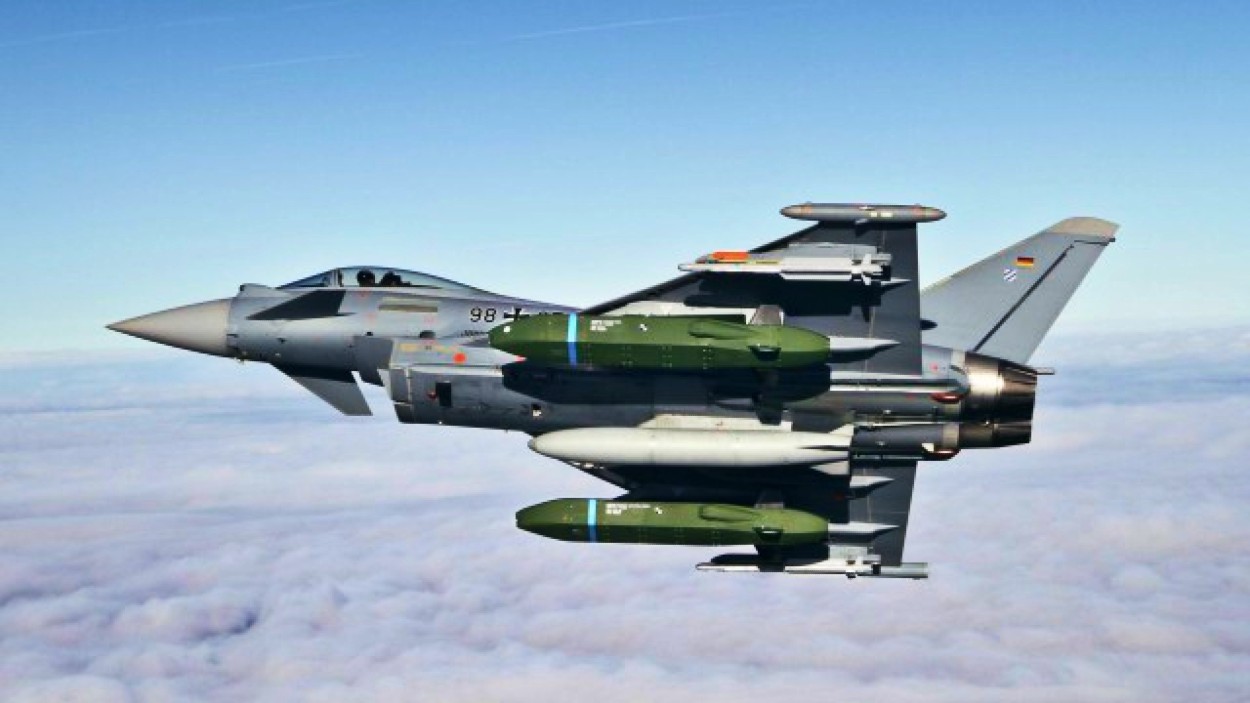In a stern rebuke directed at the German government, MBDA, the renowned manufacturer of Taurus missiles, has expressed frustration over what it perceives as tardiness in decision-making regarding defense contracts.
MBDA, a collaborative effort involving aerospace giants Airbus, BAE Systems, and Leonardo, is at the forefront of missile technology. Its portfolio includes the Taurus cruise missile and Patriot anti-aircraft missiles.
Thomas Gottschild, the head of the German subsidiary of MBDA, stressed the urgency of expediting production orders to meet growing demands. He said, “We can do it much better and faster here in Germany.”
Gottschild underscored the ramifications of delayed decisions, stating that without firm orders, production of Taurus missiles has come to a halt.
“It is a challenge for our industry when production is interrupted,” he lamented, elucidating that such pauses disrupt the operations of suppliers, many of which are small to medium-sized enterprises.
The complex process of resuming production necessitates efforts to reestablish supply chains and secure essential raw materials, particularly in the explosives sector, where vulnerabilities persist due to high global demand.
“The arms industry needs a base load of production,” Gottschild emphasized, advocating for sustained output to uphold the integrity of supply chains, which will ensure equipment readiness and preserve personnel expertise.
Despite these challenges, there are instances of progress. Gottschild cited the ongoing fulfillment of several states’ orders for 1,000 Patriot missiles, a collaboration with MBDA’s US partner Raytheon in Schrobenhausen.
“We will deliver the first Patriot missiles within three years,” he confirmed. This demonstrates the possibility of prompt execution when decisive measures are implemented.
The Taurus manufacturer’s criticism of the German government arises against the backdrop of Berlin’s decision to abstain from supplying the long-range missiles requested by Ukraine to counter Russia, citing a desire to avert further escalation of the conflict.
Ukrainian Foreign Minister Dmytro Kuleba recently disclosed receiving “irritated comments” from Germany in response to Ukraine’s appeals for Taurus missiles. Kuleba’s remarks reflect growing frustration over Germany’s reluctance to transfer these missiles despite Ukraine’s pressing need.
Germany’s Hesitation In Providing Taurus Missiles
Ukraine has continuously requested the missiles and has assured that they would not be directed toward Russian territory. However, skepticism remains, particularly within the German government led by Chancellor Olaf Scholz.
The documented instances of drone attacks in Moscow and its surroundings, believed to have Ukrainian involvement, have fueled doubts about Kyiv’s intentions.
The Taurus missile, boasting a range of 310 miles, can reach targets well beyond the immediate conflict zone, potentially extending into Russian territory.
Comparisons between the Taurus and other long-range cruise missiles, such as the Storm Shadow and France’s Scalp, underscore the Taurus’s unique capabilities.
The Taurus presents a powerful option with its longer range, advanced navigation systems, and enhanced accuracy. Unlike its counterparts, the Taurus’s terrain-contour matching navigation system renders it less vulnerable to electronic jamming, while its extended range offers increased safety for fighter jet pilots.

The fear of inadvertently escalating the conflict looms large among German officials. The leaked conference call among Bundeswehr army chiefs also highlighted concerns about the potential repercussions of supplying Taurus missiles, fearing it could entangle Germany further in the conflict should the missiles end up on Russian soil.
In addition, Chancellor Scholz has argued against the transfer, contending that it would effectively make Germany a “party to the war,” necessitating the presence of Bundeswehr soldiers on the ground to train Ukrainian forces.
However, proponents of the transfer suggest that Taurus Systems, the manufacturer, could provide training independently.
Efforts to sway Germany’s stance have seen inventive proposals from allies like Britain’s Foreign Secretary David Cameron, suggesting a workaround that would involve Germany sending Taurus missiles to Britain, enabling Britain to send more of its Storm Shadow cruise missiles to Ukraine.
Scholz is facing domestic pressure, with Annalena Baerbock, his Green foreign minister, suggesting that dialogue with Britain is “an option.”
Meanwhile, Friedrich Merz, the leader of Germany’s main opposition party, the conservative Christian Democratic Union (CDU), is advocating for Germany to promptly send Taurus missiles to Ukraine. In the past, Scholz had succumbed to pressure to provide Ukraine with Leopard tanks.
However, the Taurus missiles have garnered a symbolic significance that some perceive as diverting attention from Ukraine’s urgent requirement for lower-tech artillery shells. Despite this, the chancellor appears resolute in his stance and shows no inclination to reconsider his decision.
- Contact the author at ashishmichel(at)gmail.com
- Follow EurAsian Times on Google News




